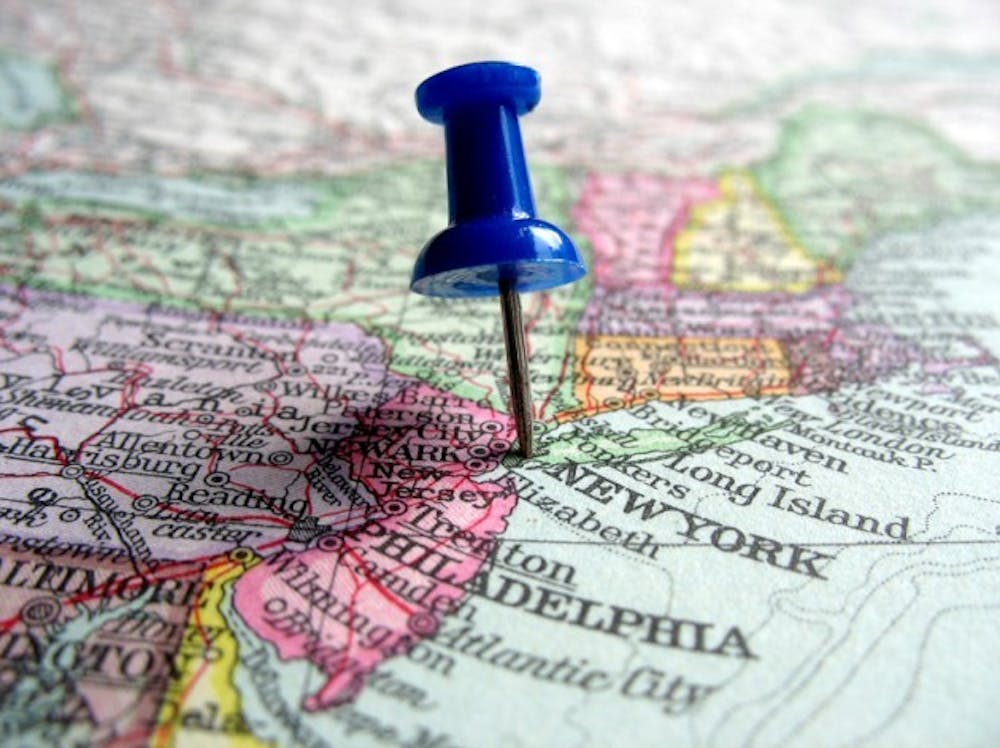Traveling doesn't have to leave a dent in college students' meager wallets. By doing research ahead of time and knowing where to look, travel expenses can be drastically decreased.
Chris Bragdon, an advisor from International Student and Scholar Services, joined with current UB students Oct. 20 to present safe and financially savvy ways for students to travel to all 50 states.
Bragdon stressed the importance of doing research about one's travel destination, local accommodations, and modes of transportation. It is vital for a traveler to ensure that both car and medical insurance will cover any accident or condition throughout the trip.
Students were also cautioned to be "street smart," carry a padlock, keep some cash in their pockets, and stay in touch with friends or family so that others are aware of their whereabouts.
Additionally, Bragdon advised students to make photocopies of important documents and guard them, along with credit cards, by carrying a money belt under their clothes. Travelers should also e-mail themselves credit card information and important numbers in case something gets stolen or lost, Bragdon said.
Aside from taking caution and doing research, Bragdon emphasized that traveling is well worth the money and time.
"There [are] approximately 65,000 miles of highway in this country," Bragdon said. "Every state has something unique and different to offer. Each state is like its own little world, different from all the others. It's definitely worth seeing them all."
Gurkishan Chadha, a pharmacy Ph.D. student, shared his traveling experiences and his preference of flying from destination to destination.
"I love to travel with Southwest Airlines. I get to check in both of my bags for free, whereas with JetBlue, only one bag is free to check in," Chadha said. "Also, if you buy a ticket three months ahead, you could find one for as cheap as $65."
Chadha gave helpful hints about places to look for money-saving traveling deals.
Booking a flight is less expensive if one does so midweek instead of during the weekend, when prices are extremely high. Also, it is smarter to book both a flight and a rental car from the same website because most sites will provide special discounts.
Another time to save money is around peak season, when flights tend to overbook passengers. When this happens, some airlines will ask for "volunteers" to give up their seats and take the next flight. Airlines often apologize by offering to pay for the ticket, and if the flight is not until the next day, they will pay for a hotel, taxi and breakfast.
Aside from flying to destinations, going by train or bus is also another viable option. Madeeha Shams, a student working on her master's degree in physics, discussed the benefits of traveling by bus or train.
"Going by train is more scenic, flexible, comfortable and food is provided. However, it is more expensive than going by bus," Shams said.
Amtrak is also less convenient because it is usually located outside of large towns, so one would have to take a taxi or another mode of transportation to get there. However, Amtrak offers a Student Advantage Account, which provides students with discounts of 15-50 percent off tickets for a $20 yearly fee.
When taking a bus, Shams advises students to choose the Greyhound or Megabus services.
"I took the Megabus from Buffalo to New York City for one dollar, all because I scheduled my ticket three months ahead of time," Shams said. "Sometimes the tickets will go for $10 if one schedules two months in advance."
Like Amtrak, Greyhound also offers students a 15-20 percent discount, and it can be more convenient because of its downtown locations. However, Greyhound tends to overbook.
China Bus is another service that transports individuals from New York City to Washington D.C. for around $20, while the California Shuttle takes people up and down the West Coast.
Students can also opt to travel by car, which can involve renting. Banu Ozel, an English Ph.D. student, tells students to always take renter's insurance when renting a car, although many claim it is unnecessary. She also discussed ways students can find deals on rental cars.
"When I bid on a rental car, I got a base price for $11 per day, which saved me a lot of money," Ozel said. "I also find it more convenient to pick up and drop off at airport locations because they are open 24 hours."
Ozel also stressed using Internet search engines to find deals and discounts.
"I do a quick Google search and find 10-20 percent-off coupons or free extra days renting a car if I buy a week," Ozel said. "I also think it is wiser to buy your own GPS instead of buying one from the rental service. You will save yourself a lot more money."
When staying in hotels, one can find a room on a Tuesday or Thursday for almost half the price of one that would be available on the weekend.
Hostels, which are like dorm rooms ranging in size from one to 20 beds, are also an option when choosing where to sleep. Hostel International is a trustworthy and reputable source available for students who are seeking an overnight place to stay.
A free option called "couch surfing" allows travelers to stay for free with another person who may have an extra bed or room. For more information, go to www.couchsurfing.org and become a member.
Some other helpful travel websites include: http://www.TripAdvisor.com, http://www.hihostels.com, http://www.kayak.com and http://www.LastMinute.com.
E-mail: features@ubspectrum.com





